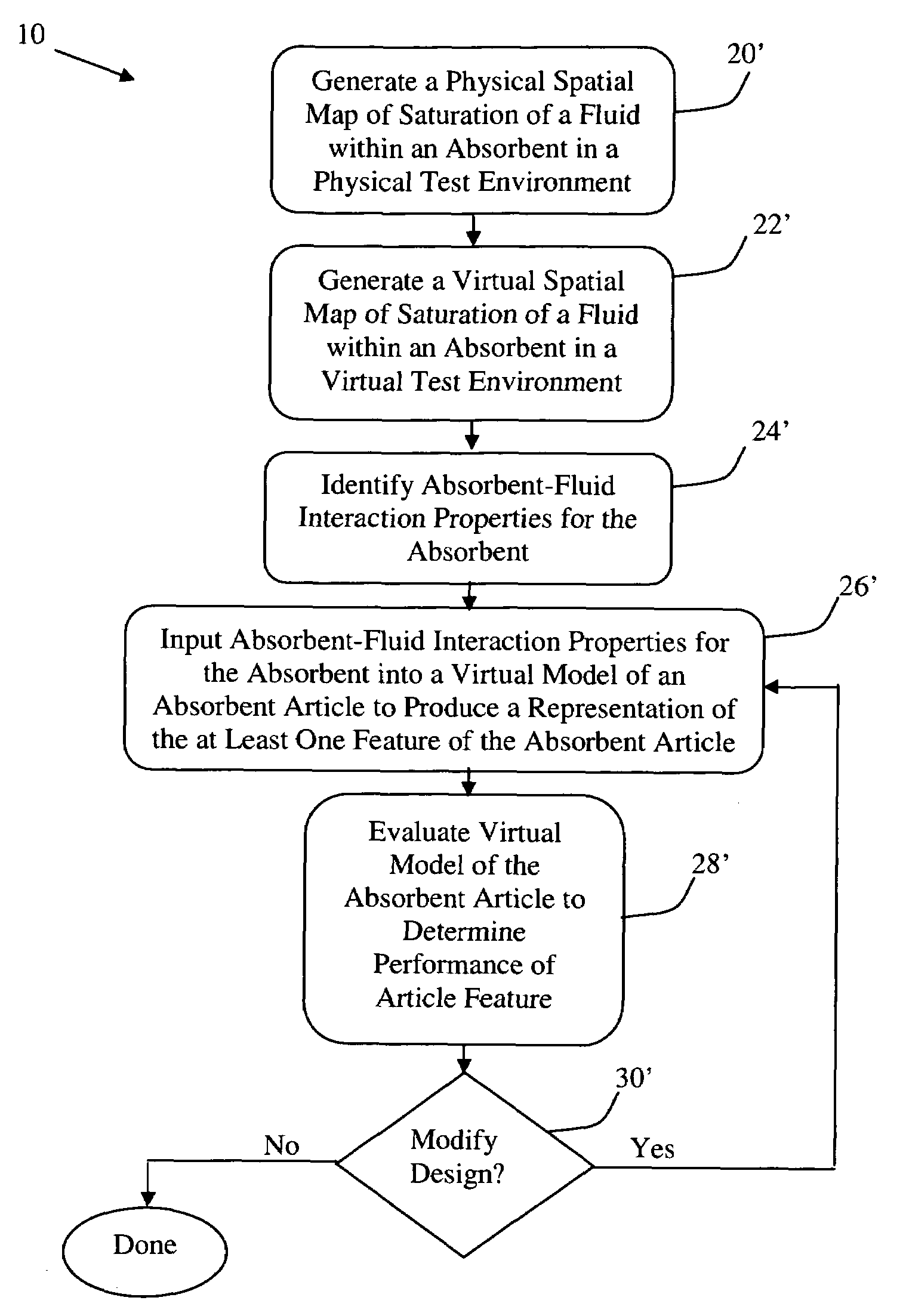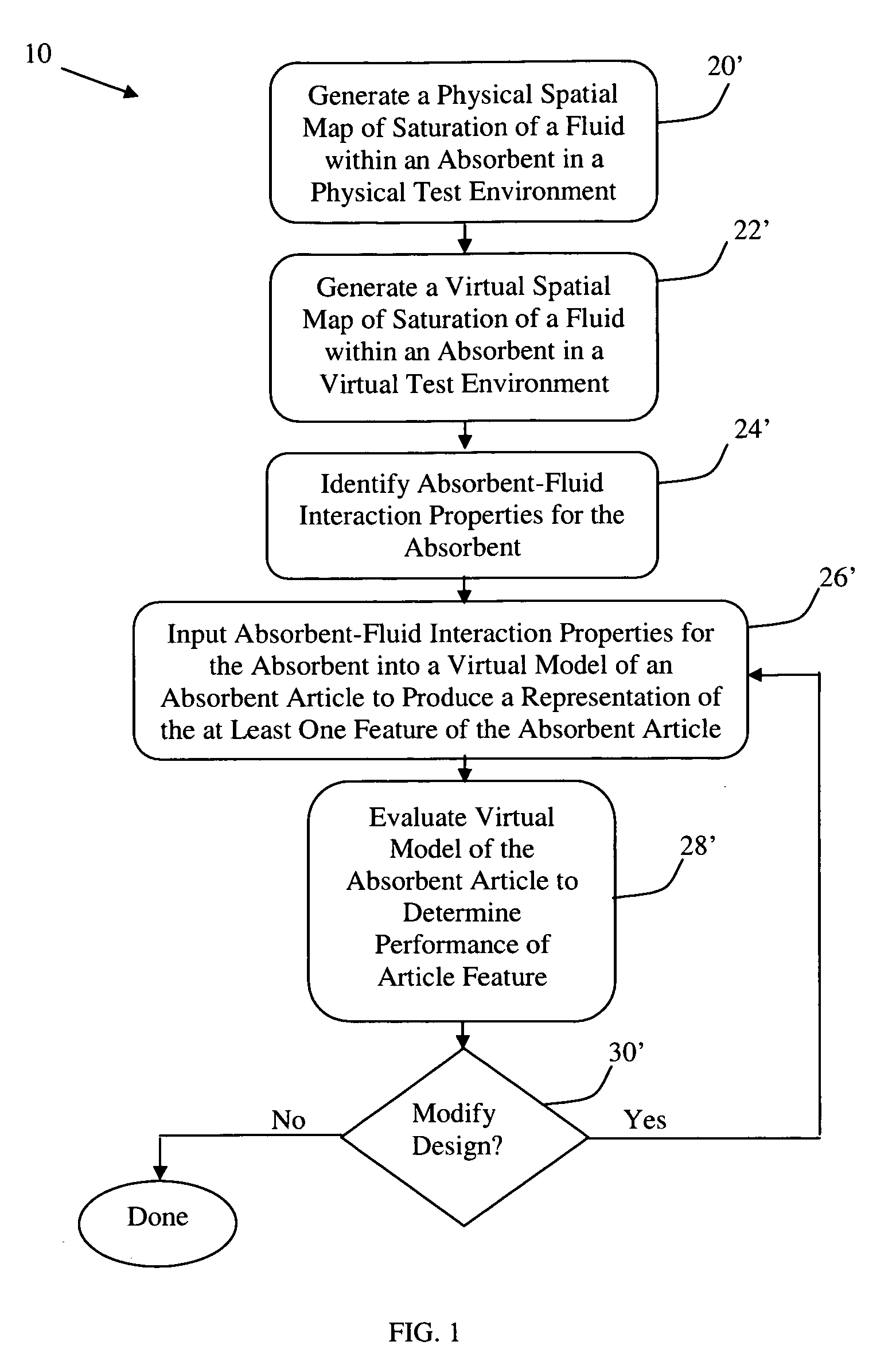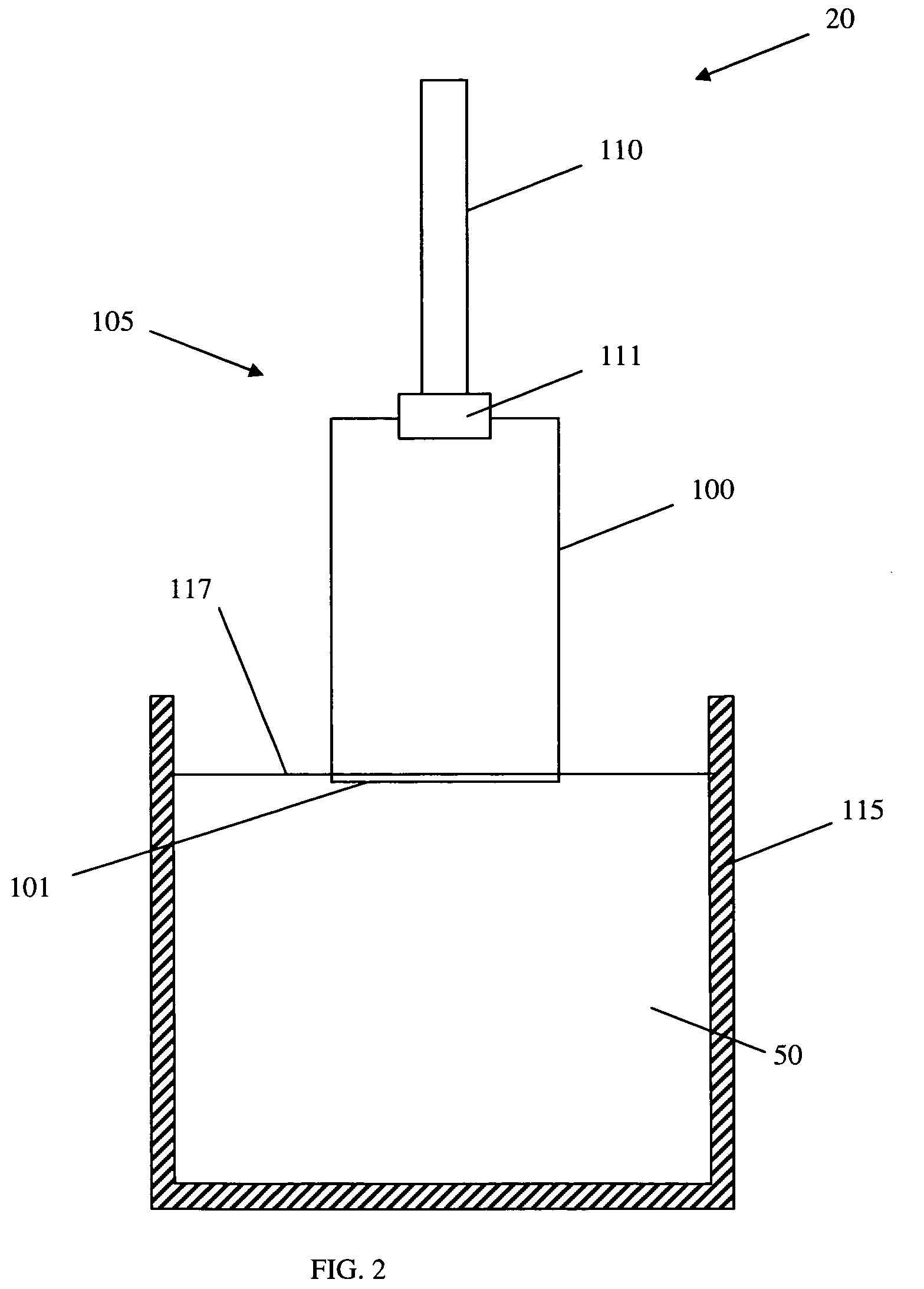Method for designing an absorbent article
a technology of absorbent articles and absorbent materials, applied in the direction of mechanical measuring arrangements, special data processing applications, mechanical pressure measurement by mechanical elements, etc., can solve the problems of increased health risks for laboratory personnel, high cost of developing prototypes of absorbent articles, and high cost of physical testing
- Summary
- Abstract
- Description
- Claims
- Application Information
AI Technical Summary
Benefits of technology
Problems solved by technology
Method used
Image
Examples
Embodiment Construction
[0027]As used herein “absorbent article” refers to a device or implement that has the capacity to uptake and / or release a fluid. Non-limiting specific examples of absorbent articles include absorbent articles worn next to the human body, in particular sanitary napkins, panti-liners, interlabial pads, tampons, diapers, pull-on diapers, training pants, incontinence products, wound dressings, and the like. Other non-limiting specific examples of absorbent articles include paper towels, facial tissue, diaper wipes, floor wipes, countertop wipes, body wipes, toddler wash wipes, bath tissues, toilet paper, handkerchiefs, feminine wipes, breast pads, household wipes, foam, and chamois.
[0028]As used herein “fluid” refers to a substance that may be absorbed into an absorbent article. Non-limiting specific examples of a fluid include water, artificial menstrual fluid, menstrual fluid, vaginal discharge, synthetic vaginal discharge, urine, synthetic urine, bowel movement fluids, bowel movement...
PUM
 Login to View More
Login to View More Abstract
Description
Claims
Application Information
 Login to View More
Login to View More - R&D
- Intellectual Property
- Life Sciences
- Materials
- Tech Scout
- Unparalleled Data Quality
- Higher Quality Content
- 60% Fewer Hallucinations
Browse by: Latest US Patents, China's latest patents, Technical Efficacy Thesaurus, Application Domain, Technology Topic, Popular Technical Reports.
© 2025 PatSnap. All rights reserved.Legal|Privacy policy|Modern Slavery Act Transparency Statement|Sitemap|About US| Contact US: help@patsnap.com



